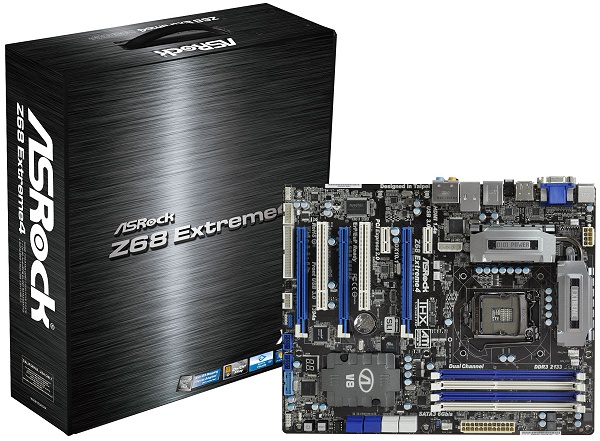Final Thoughts
We don't think anyone expected to see a performance difference between the Z68 and P67 chipsets when using a near identical configuration and unsurprisingly there isn't any. While some users will undoubtedly appreciate the combined overclocking and graphics functionality of the H67 and P67, the Z68's primary attraction is Intel's Smart Response Technology and Lucid's Virtu software, thus our focus on those new features.
Although Virtu worked as intended, it didn't exactly "wow" us like SRT did. We don't believe Virtu will be limited to the Z68, let alone Intel chipsets for that matter. In other words, while we see potential for the software, we don't think it's a key selling point for the Z68. Conversely, SRT is the best example of hybrid storage technology we've seen to date and it should help broaden SSD adoption.

By now we've become quite fond of Smart Response, though it certainly has its pros and cons. First and foremost, you still need to buy an SSD – albeit a much smaller, cheaper SSD than you would need for a typical boot drive, but even at $50 the 20GB Larsen Creek SSD isn't free. Second, although SRT demonstrated some impressive speed gains over a standalone hard drive, it's not nearly as fast as a dedicated full-size SSD.
Pricing and performance aside, there's also the unfortunate requirement that most users will have to reinstall Windows unless they are willing to manually edit the system registry. Intel's SRT requires you to enable RAID mode, which will force AHCI or IDE installations to blue screen upon loading an existing copy of your operating system. We believe the performance boost is worth the inconvenience, but it's worth noting that this isn't as easy as upgrading your graphics card or RAM.
Cash-strapped performance junkies have the obvious alternative of buying a small 64, 80 or 128GB SSD to house their operating system and key applications, but that has its own drawbacks. For instance, you'll have to manually decide what data is worthy enough to be housed on your speedy flash drive. The remaining bits, of course, are forced to take refuge on an archaic disk drive without the luxury of the SSD cache.

Outstanding product: Asrock Z68 Extreme4 Motherboard (Intel Z68)
Along with Asrock all key players in the motherboard market have introduced Z68-based products, including Asus, Gigabyte and MSI – all of whom were featured in April's five-way P67 shootout. At $200, Asrock's Z68 Extreme4 is priced pretty sensibly at $40 more than the P67 Extreme4 and $10 less than the P67 Extreme6. If that's more than you can spare for a motherboard, Asrock offers Z68 Pro3-M for just $125. Either way you'll be getting a solid motherboard into your hands.